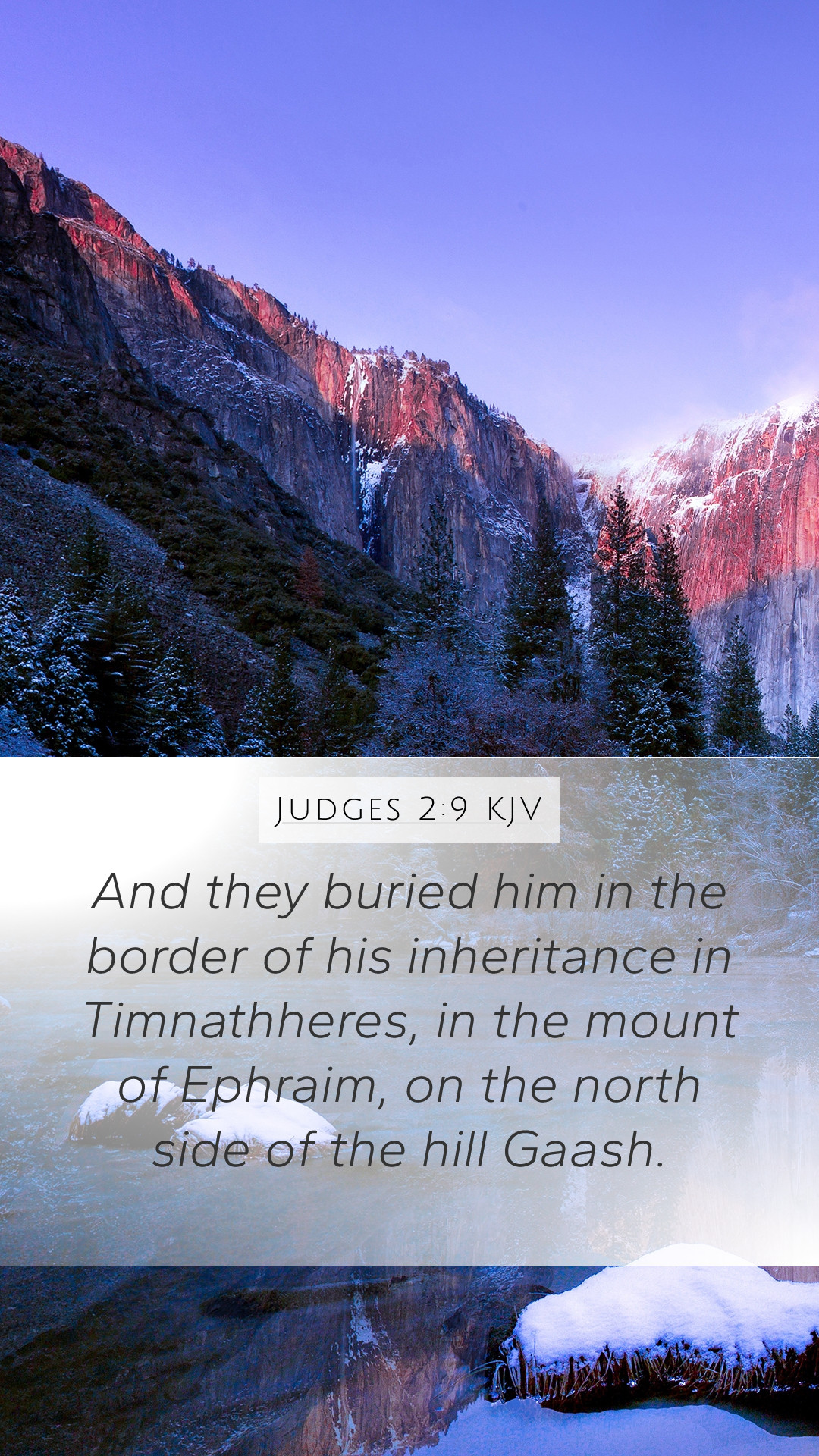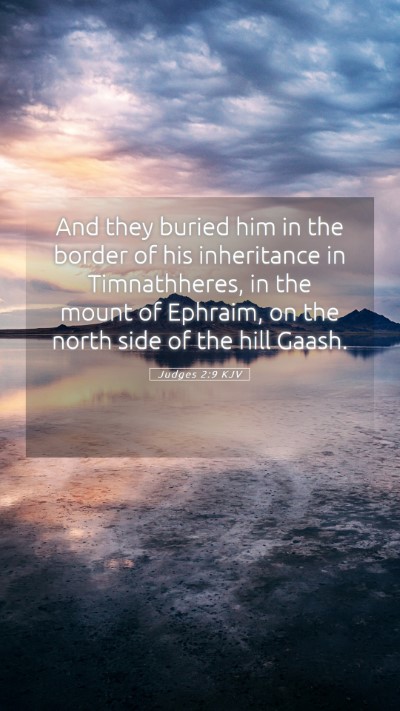Old Testament
Genesis Exodus Leviticus Numbers Deuteronomy Joshua Judges Ruth 1 Samuel 2 Samuel 1 Kings 2 Kings 1 Chronicles 2 Chronicles Ezra Nehemiah Esther Job Psalms Proverbs Ecclesiastes Song of Solomon Isaiah Jeremiah Lamentations Ezekiel Daniel Hosea Joel Amos Obadiah Jonah Micah Nahum Habakkuk Zephaniah Haggai Zechariah MalachiJudges 2:9 Meaning
What is the meaning of Judges 2:9?
And they buried him in the border of his inheritance in Timnathheres, in the mount of Ephraim, on the north side of the hill Gaash.
Judges 2:9 Bible Verse Meaning
Bible Verse Commentary on Judges 2:9
Verse: Judges 2:9 - "And they buried him in his own land, in the border of his inheritance in Timnath-heres, in the mount of Ephraim, which was on the north side of the hill of Gaash."
Understanding Judges 2:9
This verse relates to the burial of Joshua, a pivotal figure in Israel's history who led the Israelites into the Promised Land. The verse encapsulates Joshua's legacy and the significance of his leadership.
Insights from Public Domain Commentaries
Matthew Henry's Commentary
Matthew Henry emphasizes the honor given to Joshua in his burial. He notes that Joshua was interred in a location that was significant—not only was it his ancestral land, but it also symbolized the fulfillment of God's promise to Israel. Henry highlights the importance of Joshua's leadership in guiding the Israelites to possess the land, a metaphor for spiritual perseverance.
Albert Barnes' Notes
Albert Barnes provides insight into the geographical importance of Timnath-heres, indicating that it was a place of inheritance that serves as a landmark of God's faithfulness. He points out that the mention of the mountain signifies that Joshua's story is entwined with the hills of Ephraim, indicating the blessings upon the tribes of Israel. Barnes uses this to reflect on the continuity of God's covenant with His people even after Joshua's death.
Adam Clarke's Commentary
Adam Clarke elaborates on the importance of burial practices in ancient Israelite culture. He notes that burial in one’s own land was significant, reflecting a connection to heritage and family. Clarke associates this act with the respect given to leaders and prophets in that era, underscoring the community's recognition of Joshua’s virtuous character and life’s work.
Application and Significance
The narrative of Joshua's burial serves as a reminder of the importance of legacy and leadership in the faith community. His life reinforces lessons in faithfulness, obedience, and leadership, crucial for those studying the Bible. This verse prompts reflection on how one's actions can impact future generations.
Lessons for Today
- Leadership: Reflect on the qualities that make a leader effective in serving others, akin to Joshua's dedication.
- Community Heritage: Acknowledge and honor the contributions of those who have walked before us in faith.
- Faith Fulfilled: Recognize the importance of trusting in God's promises and the fulfillment seen throughout the biblical narrative.
Related Bible Cross References
- Joshua 1:1-9 - The commissioning of Joshua as leader of Israel.
- Joshua 24:29-31 - The death and burial of Joshua and the Israelites' commitment to God.
- Deuteronomy 34:5-6 - The burial of Moses, highlighting similar themes of legacy.
Conclusion
In Judges 2:9, we find a profound lesson about leadership, heritage, and faithfulness. By examining this verse through the lenses of Matthew Henry, Albert Barnes, and Adam Clarke, we gain deeper Bible verse understanding and connect with the historical context, making it relevant for modern Bible study insights. These reflections encourage believers to consider how they can lead with integrity and remain faithful to their spiritual heritage.
For those interested in Bible verse explanations and Bible study lessons, this verse serves as a cornerstone for understanding the faithfulness of God’s promises and the importance of honoring those who faithfully serve Him.


